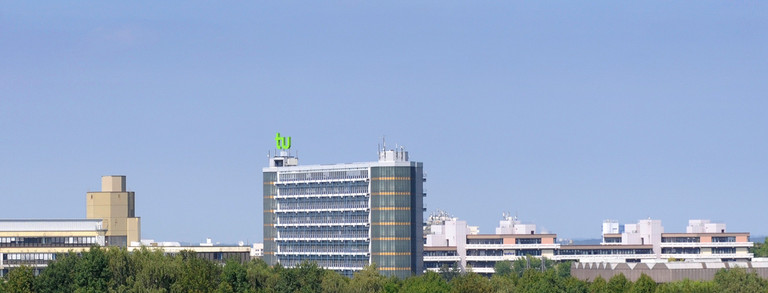Rudolf Chaudoire Prize Awarded
- Top News
- Research

Dr. Shari Meichsner conducts research at the Chair of Physical Chemistry on mismetallization processes in metalloproteins. Metalloproteins – proteins that contain metals – are fundamental components of all forms of life. When an incorrect metal binds to a protein, an imbalance occurs, known as mismetallization, which can lead to diseases and cell death. Using electron spin resonance spectroscopy, Dr. Meichsner explores how cells regulate these mismetallizations. During her research stay at Stockholm University, she also utilized the local infrastructure for total reflection X-ray fluorescence analysis for even more precise measurements. Her investigations have shown that mismetallizations are reversible, i.e., the cells can switch back to another state. These findings have far-reaching implications for understanding cellular processes and diseases such as cancer. Dr. Meichsner presented her results at the European Biophysical Societies Association Congress in Stockholm during her research stay.
Dr. Simon Wimmer is researching at the Chair of Theoretical Philosophy on ordinary language philosophy. This philosophical current, which focuses on everyday language as its subject of study and method of knowledge, is dated to the mid-20th century and was influenced by J. L. Austin, Gilbert Ryle, and Ludwig Wittgenstein. It is often understood as a counter-reaction to the ideal – i.e., formal and mathematical – language philosophy that dominated the early 20th century. Dr. Wimmer questions this standard narrative by reconstructing similarities between the ordinary language philosophy and Oxford Realism, founded by John Cook Wilson in the early 20th century. While there was no direct contact between Cook Wilson and Austin, Ryle, and Wittgenstein, Dr. Wimmer posits that Cook Wilson's ideas indirectly influenced Austin and Ryle. This would shift the beginnings of the ordinary language philosophy forward by several decades. Dr. Wimmer aims to substantiate his thesis through research in the archives of the University of Oxford in the UK and Cornell University in the USA in the coming spring.
Prize enables research stays abroad
Prof. Manfred Bayer, President of TU Dortmund University, and Dr. Gert Fischer, member of the board of the Rudolf Chaudoire Foundation, delivered the welcoming speeches at the award ceremony. Prof. Nele McElvany, Vice President Research at TU Dortmund University, introduced the award recipients. The ceremonial address was given, as usual, by a former awardee: Dr. Jörg Debus from the Department of Physics, who is now working there as an assistant professor (Akademischer Rat) and currently also serving as a substitute professor. In 2013, he received the Chaudoire Prize for his research on interactions between spins. As modern information and communication technologies consume more and more energy, he is investigating how optical information transmission can be optimized. Thereby, spins – the smallest possible magnet of an electron – are intended to be used for the storage and processing of information. With the prize money, Dr. Debus funded research stays in Russia and Poland.
The Rudolf Chaudoire Foundation emerged from the legacy of the industrialist Rudolf Chaudoire, based in the Ruhr area, who was dedicated to promoting vocational training for young people. Since 1995, the foundation has regularly provided generous funds, the proceeds of which are used annually to award the Rudolf Chaudoire Prize for young researchers at TU Dortmund University. The prize is intended to support a research project abroad. So far, 58 TU researchers have been honored.
Impressions from the event:
Contact persons for queries:





![[Translate to English:] Partner Four hands are holding the green logo of TU Dortmund University](/storages/tu_website/_processed_/1/d/csm_Partner_Nicole_Rechmann_KW_670eba0154.jpg)




![[Translate to English:] Forschung An apparatus with tubes in a laboratory](/storages/tu_website/_processed_/0/c/csm_Forschung_Juergen_Huhn_4fa3153b51.jpg)
![[Translate to English:] Studium Five students are sitting in a lecture hall. They are talking to each other.](/storages/tu_website/_processed_/c/9/csm_Studium_FelixSchmale_dbdbfb0dd7.jpg)













